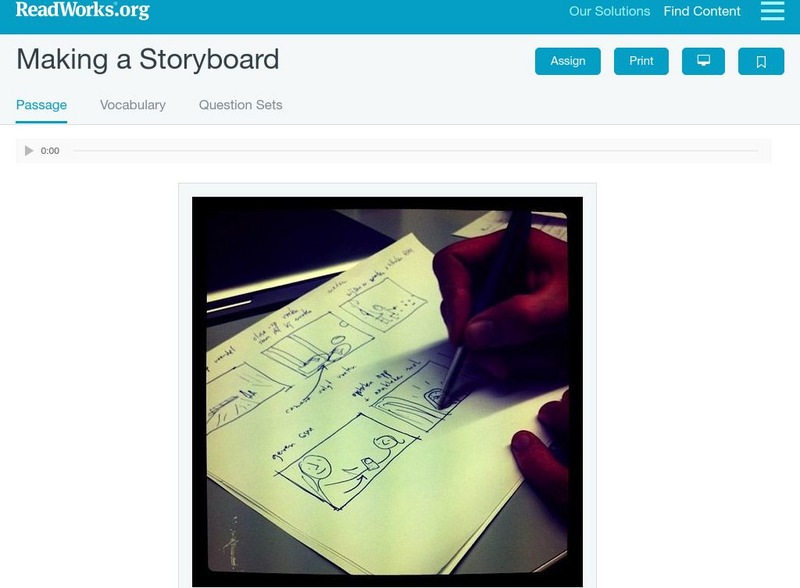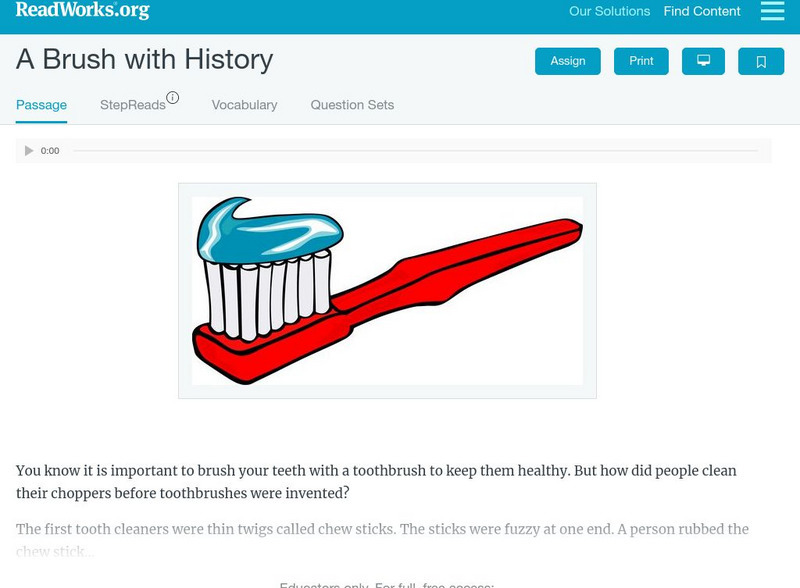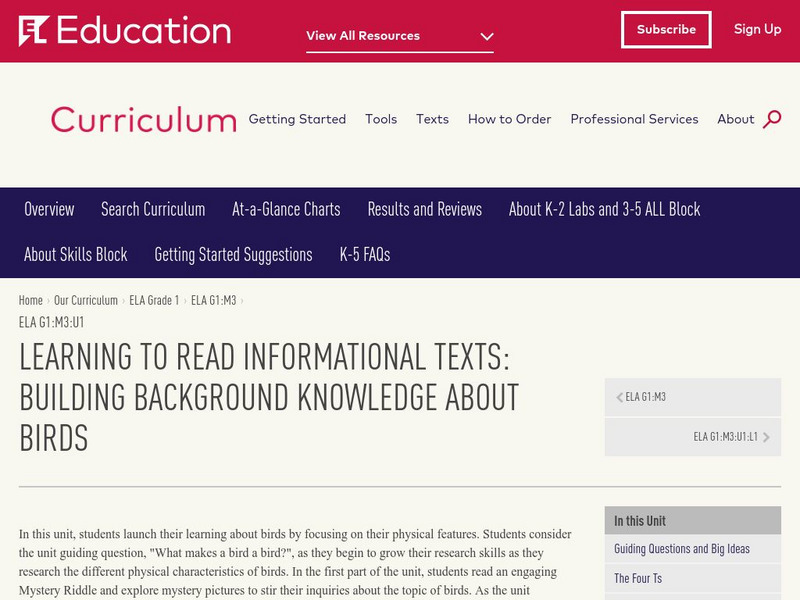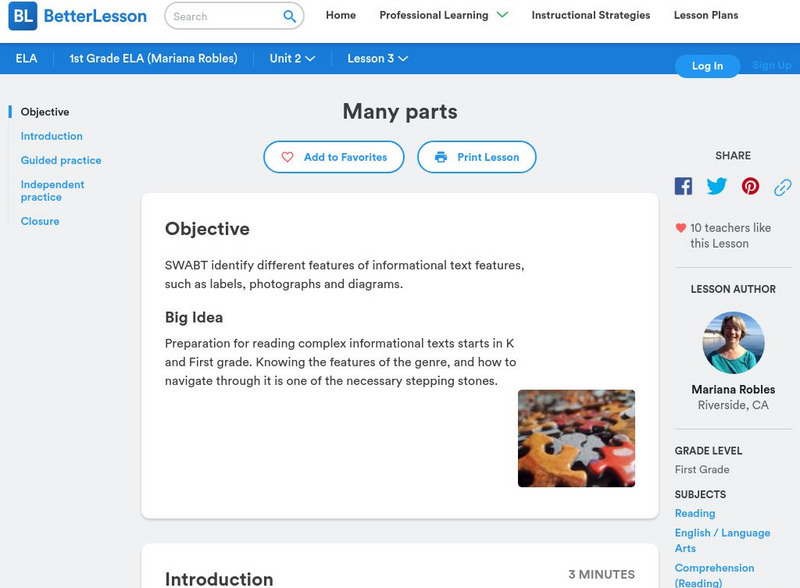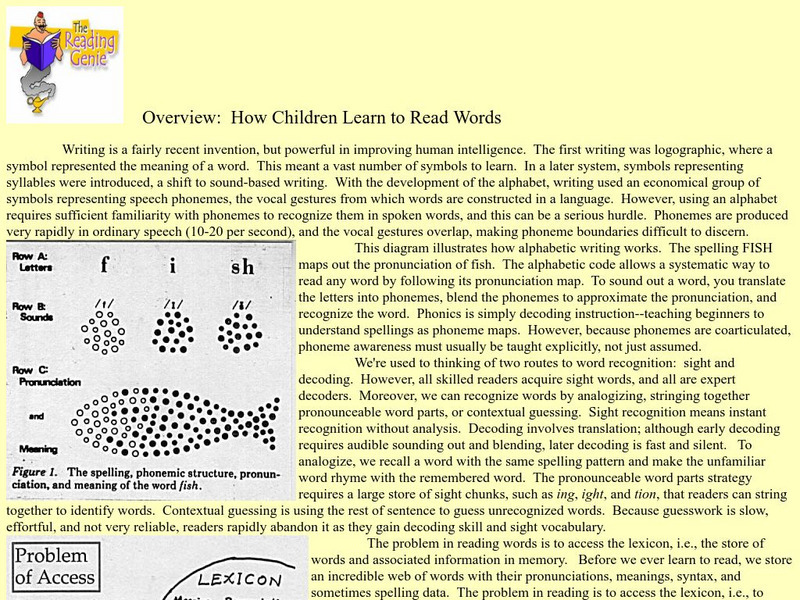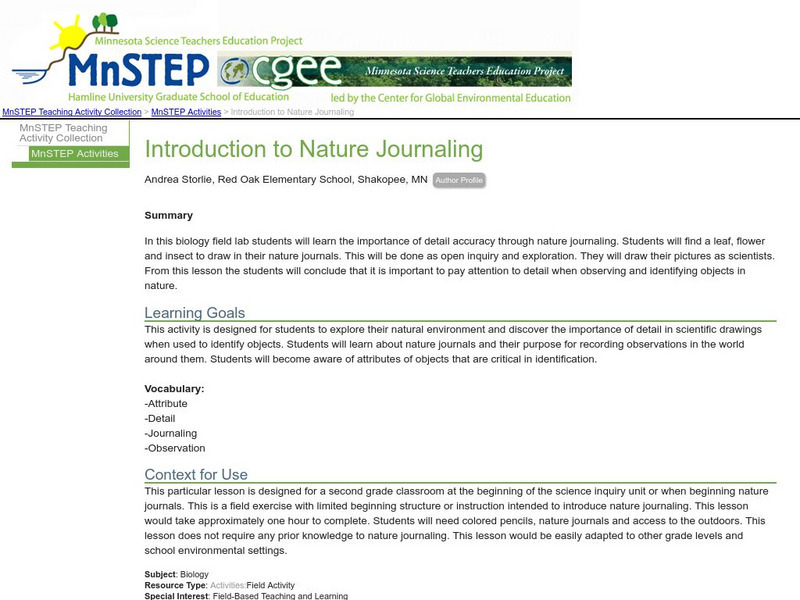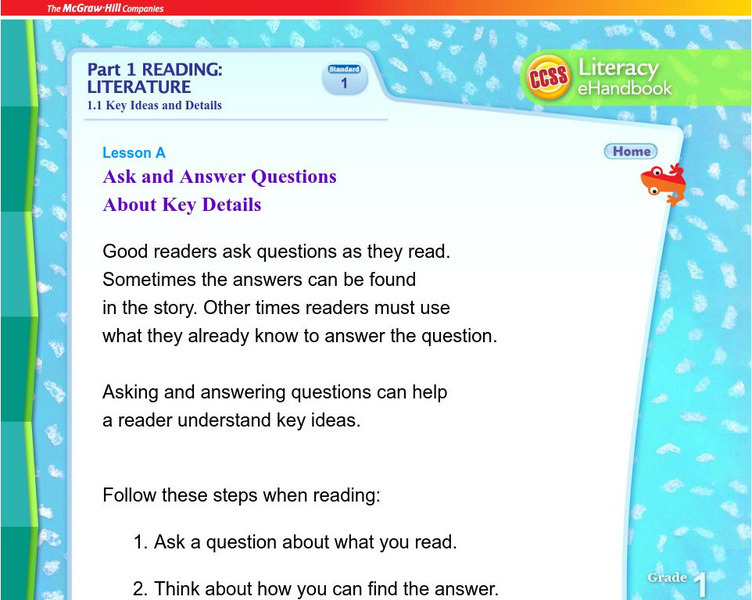California Academy of Science
Guess That Spice
From medical treatments to cooking, people have been using herbs and spices for thousands of years. Perform a blind smell test of household herbs and spices to engage students in learning about ancient spice trading. Research the history...
Curated OER
Lesson 3: Encyclopedias
After being introduced to non-fiction texts, second graders meet a different type of non-fiction text that can help them locate factual information. They discuss and examine all of the features found in typical encyclopedias such as,...
Curated OER
Baby Peanut Plants
Science is a subject ripe with opportunities to read informational text. Kids read to learn about peanuts! They read an informational passage, fill out two comprehension worksheets, and then conduct a lab experiment on a peanut. The...
McGraw Hill
Mc Graw Hill Education: Grade 2: Treasures: Practice Book O [Pdf]
Help second graders reinforce their understanding of the reading skills, vocabulary acquisition, phonemic awareness, and sight words with the pages in this 260-page workbook. This workbook is designed to supplement the stories from Grade...
Other
Wisconsin Educational Communication Board: Into the Book
This series of videos and interactive activities provide an excellent set of resources for teaching or learning the 8 research based reading strategies provided here. After receiving your "key" you can investigate the features inside and...
Read Works
Read Works: Passages: Making a Storyboard
[Free Registration/Login Required] Students read a nonfiction text about a girl whose aunt is a children's book author and answer questions about comprehension, sequencing, supporting details, main idea, vocabulary, and more. Links to a...
Read Works
Read Works: Passages: Grade 2: A Brush With History
[Free Registration/Login Required] Students read a non-fiction article about the history of a toothbrush and answer questions in comprehension, sequencing, inferences, main idea, transitions, and more. A link to paired text questions is...
University of South Florida
Fcat Express: Cause and Effect
Site provides extensive assistance in preparing 4th grade students for Florida Comprehensive Assessment Test. This section helps students identify cause and effect in literature.
Better Lesson
Better Lesson: Guess My Solid
Descriptive details are used as learners develop a guessing game poster for others to try and guess their chosen solid. Included in this detailed lesson plan are videos, samples of student work, a printable worksheet, an assessment...
EL Education
El Education: Learning to Read Informational Texts: Building Background
In this comprehensive unit, students launch their learning about birds by using informational texts. As students read these texts, they build background knowledge and develop their skills as readers of informational texts. Included are...
Better Lesson
Better Lesson: Many Parts
Preparation for reading complex informational texts starts in K and First grade. Knowing the features of the genre, and how to navigate through it is one of the necessary stepping stones. This instructional activity introduces the...
CPALMS
Cpalms: What Do You Do With a Tail Like This?
[Free Registration/Login Required] In this instructional activity, students will use What Do You Do With A Tail Like This? by Steve Jenkins and Robin Page to identify the main topic and key details using the illustrations and text....
Better Lesson
Better Lesson: Text Feature Diagrams
At the end of this instructional activity, students will be able to identify and create diagrams associated with informational text. Included is a link to an eSpark video on diagrams, rules for group work, multiple examples of diagrams,...
CPALMS
Cpalms: Compare/contrast Life Cycle Texts
[Free Registration/Login Required] Students will learn to compare and contrast texts about life cycles using a Venn diagram. Then, using the Venn diagram, students will write an expository paragraph including an introductory sentence,...
Better Lesson
Better Lesson: Visual Representations in Informational Text
Students will look at examples of illustrations and diagrams in informational texts and discuss how each one helps enhance the text. Students gain the knowledge that sometimes a picture is worth a thousand words because a complex idea...
Better Lesson
Better Lesson: What Shapes the Land?
In this lesson plan, the teacher will read a book about different landforms. The children will learn about the features of the landforms and how they were shaped by natural forces. Then text features will be discussed. The children will...
Reading Rockets
Reading Rockets: Reading Basics: Comprehension
Provides articles, parent tips, research briefs, and a video on how to teach reading comprehension.
CPALMS
Cpalms: Giraffes and Zebras Oh My!
[Free Registration/Login Required] For this lesson plan, students will be able to ask and answer questions about key details in a text. Additionally, students will also be able to identify, compare, and contrast characteristics between...
Auburn University
Auburn University: How Children Learn to Read Words
How do children really learn to read words? This resource offers insight into this complicated but exciting journey of putting sounds and words together to learn the joy of reading. Come and discover more.
Michigan State University
Michigan State University: Interventions for Reading: Reconciled Reading
This intervention, which is based on Schema Theory, engages young scholars in enrichment activities prior to reading the passage. In this way, students have the opportunity to activate and enhance existing knowledge before reading....
Science Education Resource Center at Carleton College
Serc: Introduction to Nature Journaling
In this activity, students will be introduced to nature journaling and discover the importance of detail accuracy in scientific drawings when used to observe and identify objects.
E Reading Worksheets
E Reading Worksheets: Setting Worksheets
In this learning module, students will study the concept of setting in literary text. Worksheets and PowerPoint lessons are provided to help students practice with finding "settings" and then citing reasons that support their answers.
Curated OER
Mc Graw Hill: Part 1: Reading Literature
Learn how asking and answering questions can help readers understand literature better. Site includes a model and an example of how to use this system.
ReadWriteThink
Read Write Think: Making Connections
A printable graphic organizer for students to use when making text to self, text, and world connections while reading a text. Directions on how to use this type of graphic organize as well as lists of teaching ideas and related resources...


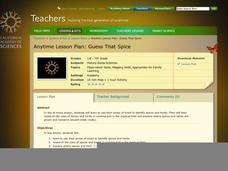


![Mc Graw Hill Education: Grade 2: Treasures: Practice Book O [Pdf] eBook Mc Graw Hill Education: Grade 2: Treasures: Practice Book O [Pdf] eBook](https://content.lessonplanet.com/knovation/original/18010-f370394f886702c6069b596e21a006e0.jpg?1661551625)

